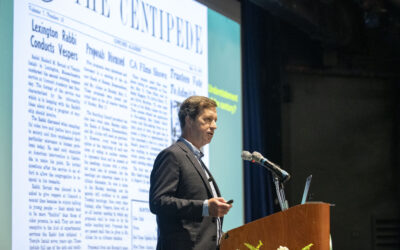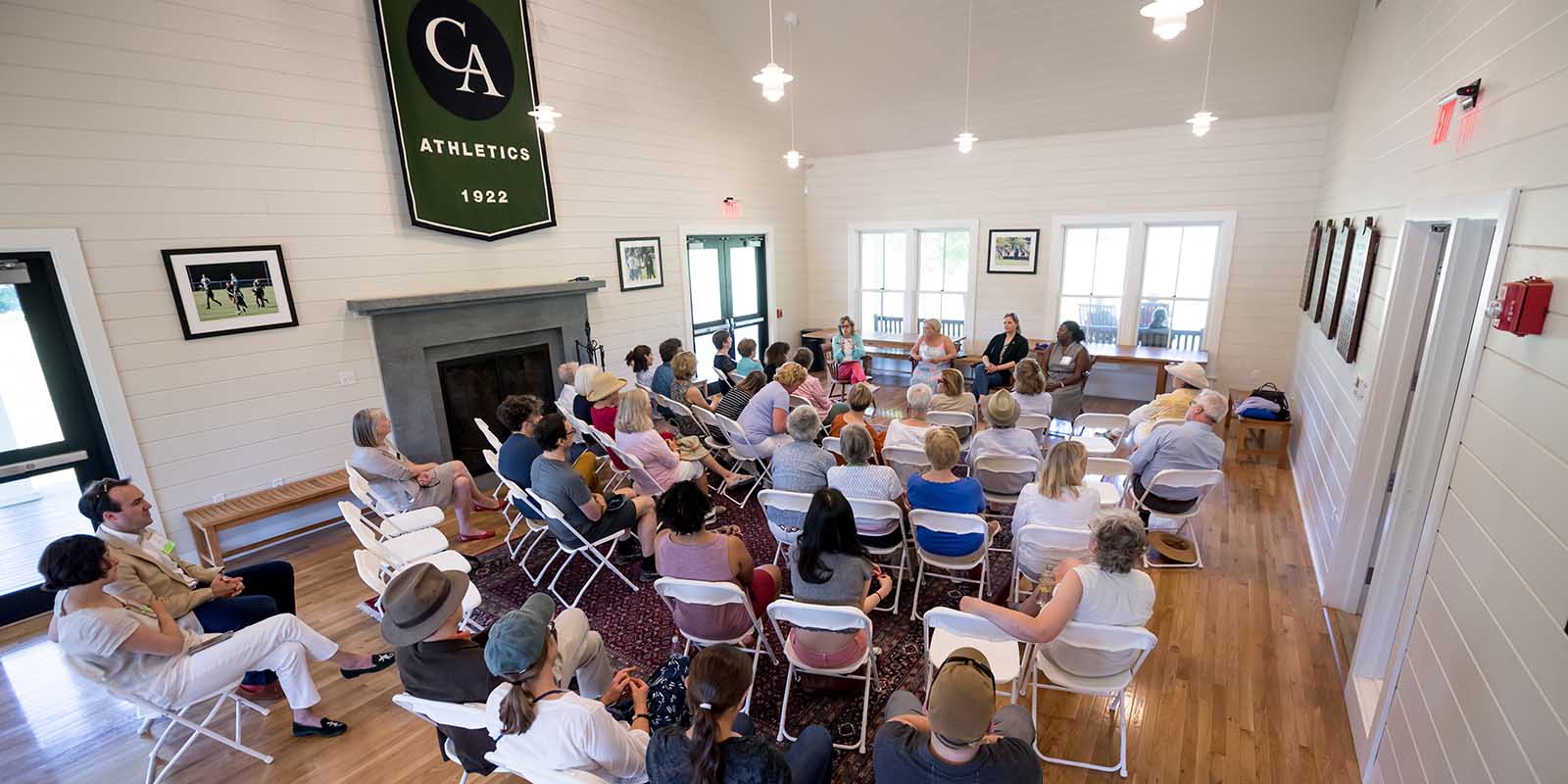
The Women and Power panel discussion drew many reunion attendees to CA’s Moriarty Athletic Campus field house.
No CA reunion would be complete without thought-provoking discussion. During the 2019 reunion weekend, Pulitzer Prize-winning journalist Julia Preston ’69, a longtime New York Times journalist covering immigration, now a contributing writer at the Marshall Project, moderated a panel discussion entitled “Women and Power: What Do We Want Now?” The conversation invited members of a large audience to contribute their own perspectives on how personal, societal, and gender-based definitions of power are shifting, and what kinds of power women want, and need, today.
Revisiting a similarly themed panel discussion at a CA reunion five years earlier, Preston recalled that at that time the distinguished women on the panel had wanted more personal power over their lives outside of their professions, and that some had deliberately retreated from pursuing institutional power to accomplish that goal. The election of 2016, however, she described as a “system shock” that “jolted many women’s thinking about what we thought we knew,” and caused many women to rethink the idea of power itself, pushing many to run, in record numbers, for political office.
Preston asked the three alumnae on the panel to reflect on their power in the workplace, in their communities, and over their lives. Notably, she said before inviting them to introduce themselves, none of the panelists initially thought they fit the description of a “powerful woman” — all had hesitated to sit on the panel.
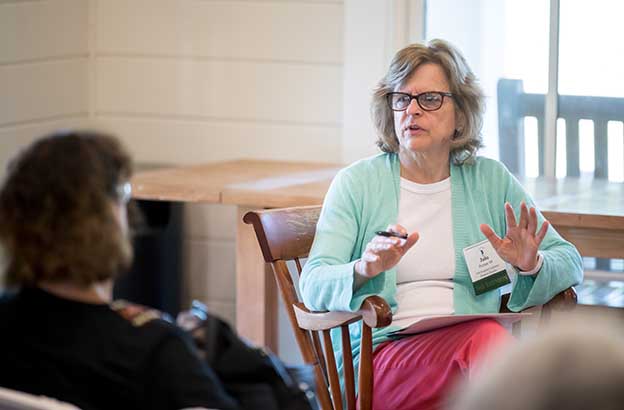
Pulitzer Prize-winning journalist Julia Preston ’69 moderated the discussion.
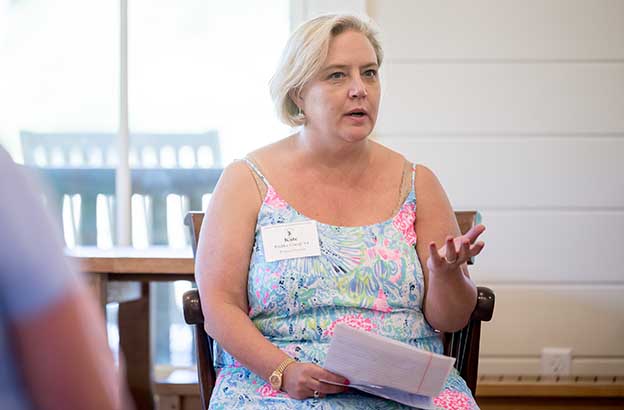
The Boston Foundation’s Kate Radtke Guedj ’84.
Kate Radtke Guedj ’84, senior vice president and chief philanthropy officer at the Boston Foundation, which awards more than $15 million in discretionary grants every year, revealed that she had long felt discomfort with the word “power,” preferring to think about capacity or the ability to direct or influence others or the course of events. When a friend told her that vulnerability is a superpower, it stopped her in her tracks. Acknowledging the terrible difficulty of balancing of work and family, she has redefined what power means to her: “showing up with as much of yourself as you can” in whatever arena you bring your attention to, be it work or family, to “listen, discern, describe, and influence.”
Meisha Thompson Newman ’94, business owner and senior interactive developer at Sapient Consulting, spoke about the challenges facing women of color in the technology industry, especially from her perspective as a parent of a young child and a caretaker of a disabled parent. After her mother suffered a stroke, Newman scaled down her business and switched to consulting to dedicate the time and energy her family needed. She didn’t think before that she fit the perception of a powerful woman because she was juggling so much, but in June at CA she shared a realization: “Personal power is about what you can affect in your world, which may be hard to see when you compare yourself to others and don’t feel powerful,” she said. “But all the things you do to lead a good life and help others are moments you exert your power.”
An associate principal at McKinsey & Company, Liz Mygatt ’99 said that for the first 30 years of her life, she thought her mother’s generation had shattered the glass ceiling. It took her experiences at Cornell’s business school and at McKinsey to make her realize how wrong she was. That understanding underscores the importance, for her, as an individual doing organizational and leadership work, of women being in the room where cultures are built and policies are set. “In any given week, I’m in conversation with big decision-makers,” she said, “and I’m one too, as an advisor. We need more women at those tables.”
Calling the 2016 election a “massive mandate against women,” Mygatt shared research McKinsey has done that shows that progress on increasing gender representation and diversity is stagnant. If current trends continue, within the next 10 years, the percentage of women in corporate management will rise by only one percentage point. “We are stalled,” she said.
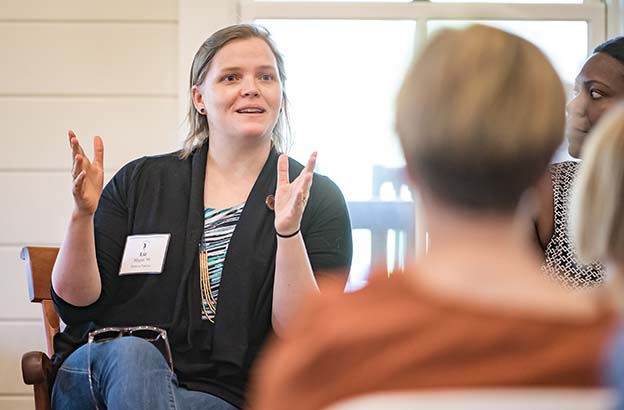
Liz Mygatt ’99, an associate principal at McKinsey & Company.
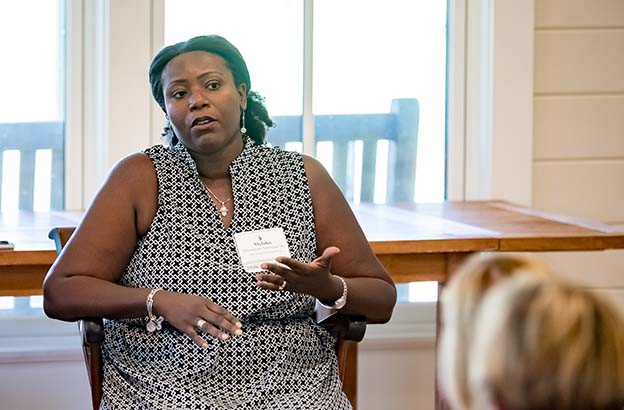
Business owner and Sapient Consulting developer Meisha Thompson Newman ’94.
Mygatt said she is aware of her professional power, but she’s uncertain whether the personal cost is worth it. As the mother of a toddler, she is finding balance difficult. “I want to be part of the solution, and to show up in own life,” she said. “I want power that feels authentic, that feels like me. Am I spending my days the way I want to?”
Guedj argued that redefining power might be in order. “Leaning into the kind of power you want to have is in conflict with how power is socially defined,” she said. “We need to shift that masculine construct of power so that power is valued beyond the way it’s historically been defined.”
The conversation turned to consider what sufficient policies for paid parental leave might be, as well as for family support throughout individuals’ careers. Each panelist also considered the influence of their time at Concord Academy. For Mygatt, her participation in sports gave her confidence in her voice and a sense of self. “It was like no other place for me,” she said.
Guedj called CA “transformational” for her as an artist and musician. And though Newman said her years at CA were very challenging — she was one of only four black students in her class — the confidence she gained from meeting those challenges gave her fuel to accomplish all she has in the world.
The discussion among the alumnae/i offered considerable nuanced thinking from several perspectives, and no easy answers. Something the panelists agreed on: Changing the power structure is a marathon, not a sprint.


